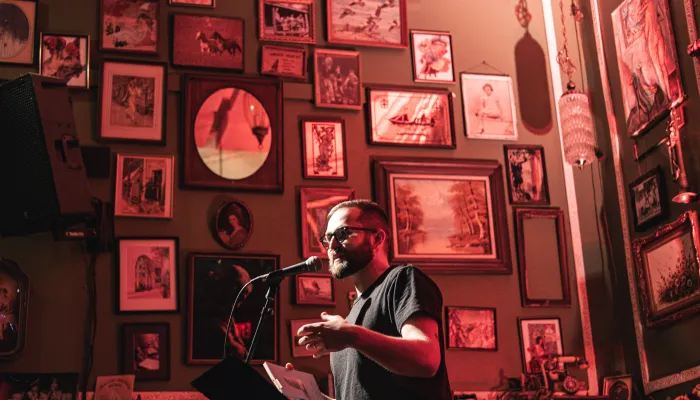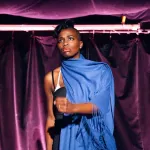A Poetry Mixtape Edited by Neil Surkan
Neil's Liner Notes
The poems in this anthology are about transitions, transformations, and trepidations. At the crossroads of big decisions, the speakers prepare themselves for the journey ahead with matter-of-fact maxims, enthusiastic affirmations, and/or recollections of past resilience. Some of these crossroad poems are offramps, as speakers swerve toward new ways of being; others are cul-de-sacs, as speakers turn back to safety; and some are freeways, as speakers stay the course feeling (re)affirmed or inspired. No matter how they forge on, you’ll notice that the speakers repeatedly remind themselves who they are – and, in turn, who they can be.
The choices we make don’t occur in a vacuum. In turn, each poem in this anthology is inextricable from its contexts: gender, race, queerness, history, and place are important to the way each speaker approaches a dilemma or challenge. Such contexts are also sources of pride and strength. For instance, in the excerpt from the Oglala Lakota poet Layli Long Soldier’s poem “Whereas,” the speaker’s refusal to hide her emotions when in pain, and her decision to pass that stance on to her daughter (“In our family we are ourselves, real feelings. Be true”), reflects her empowering choice to confront, rather than ignore, the painful legacy of colonialism. In the case of Mary Jean Chan’s poem “Notes Toward an Understanding,” the speaker describes her mind as “tuned to / two frequencies” – suspended between two languages, two cultures, and, simultaneously, two ways of being – and recognizes she must soon choose between her family and her partner before she loses both. And in the case of J. Jennifer Espinoza’s poem “Comfort,” the speaker continues to search for safe space in a world that brims with “news reports” of violence against trans women, even though she feels like she is trying to “describe a colour” she has “never been allowed to see.” Contexts matter. And although contexts are sometimes restricting, they can also be liberating. What makes me me?, the speakers ask, And how might my experiences in this body, in this time, in this place serve as fuel for the next stretch?
Hopefully these poems make inspiring company in your own moments of discernment as you reflect, reckon, and choose. As you read them, you might ask yourself the following questions: When did I show resilience in my past? Which beliefs, values, and legacies have I inherited? What do I celebrate about myself? Who do I want to become? May they carry you across the threshold with courage and confidence. May they inspire you, in the words of Jessie Jones’s poem “Eclipse,” to “flourish / even without permission.”
The Poems
J-Card (PDF)
Recommended reading
- Asghar, Fatimah. If They Come For Us. One World, 2018.
- Conrad, CA. ECODEVIANCE: (Soma)tics for the Future Wilderness. Wave, 2014.
- Corral, Eduardo. Guillotine. Graywolf, 2020.
- Kirby. What Do You Want To Be Called? Anstruther, 2020.
- Matuk, Nyla, ed. Resisting Canada. Signal, 2019.
- Naga, Noor. Washes, Prays. M & S, 2020.
- Phillips, Rowan Ricardo. Living Weapon. FSG, 2020.
- Queyras, Sina. Expressway. Coach House, 2009.
- Rankine, Claudia. Don’t Let Me Be Lonely. Graywolf, 2004.
- Ritland, Laura. East and West. Signal, 2018.
- Ritvo, Max. Four Reincarnations. Milkweed, 2016.
- Shapero, Natalie. Popular Longing. Copper Canyon, 2021.
- Stinzi, John Elizabeth. Junebat. Anansi, 2020.
- Trumpfheller, Bradley. Reconstructions. Sibling Rivalry, 2020.
- Xu, Wendy. You Are Not Dead. Cleveland State University Poetry Center, 2013.
 ,
,  ,
, 

 ,
,  ,
, 








